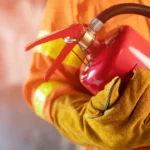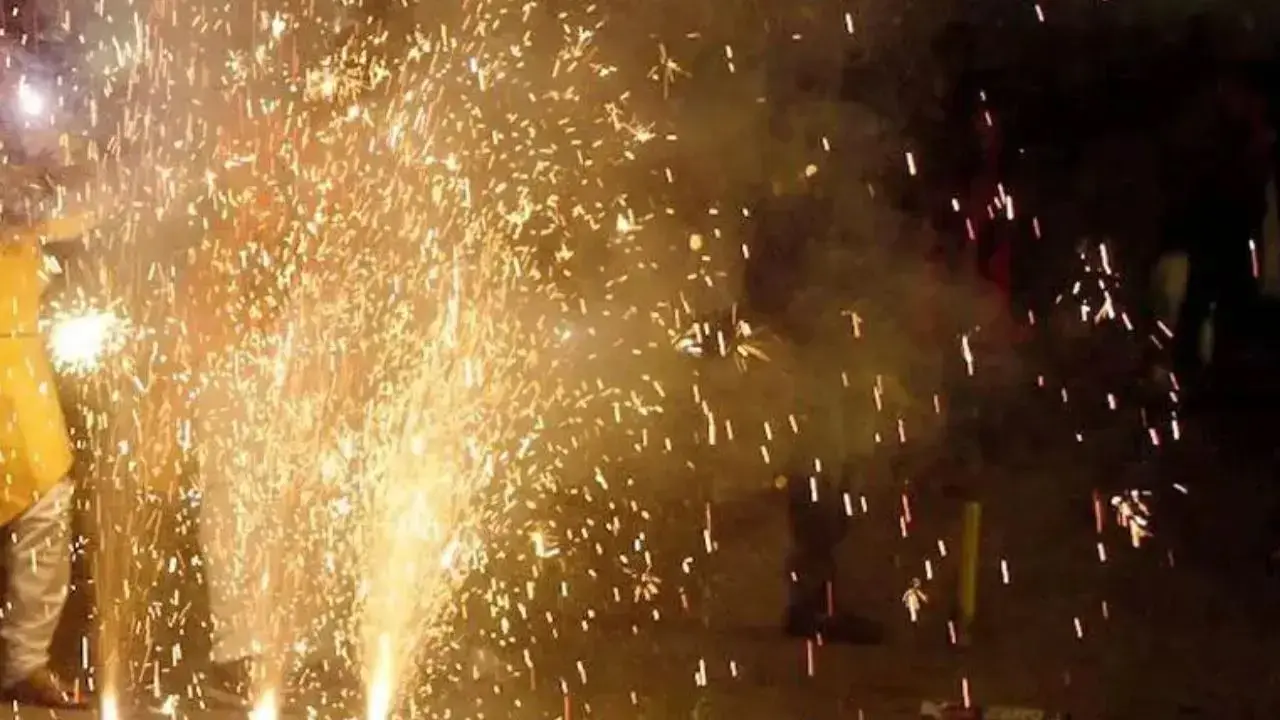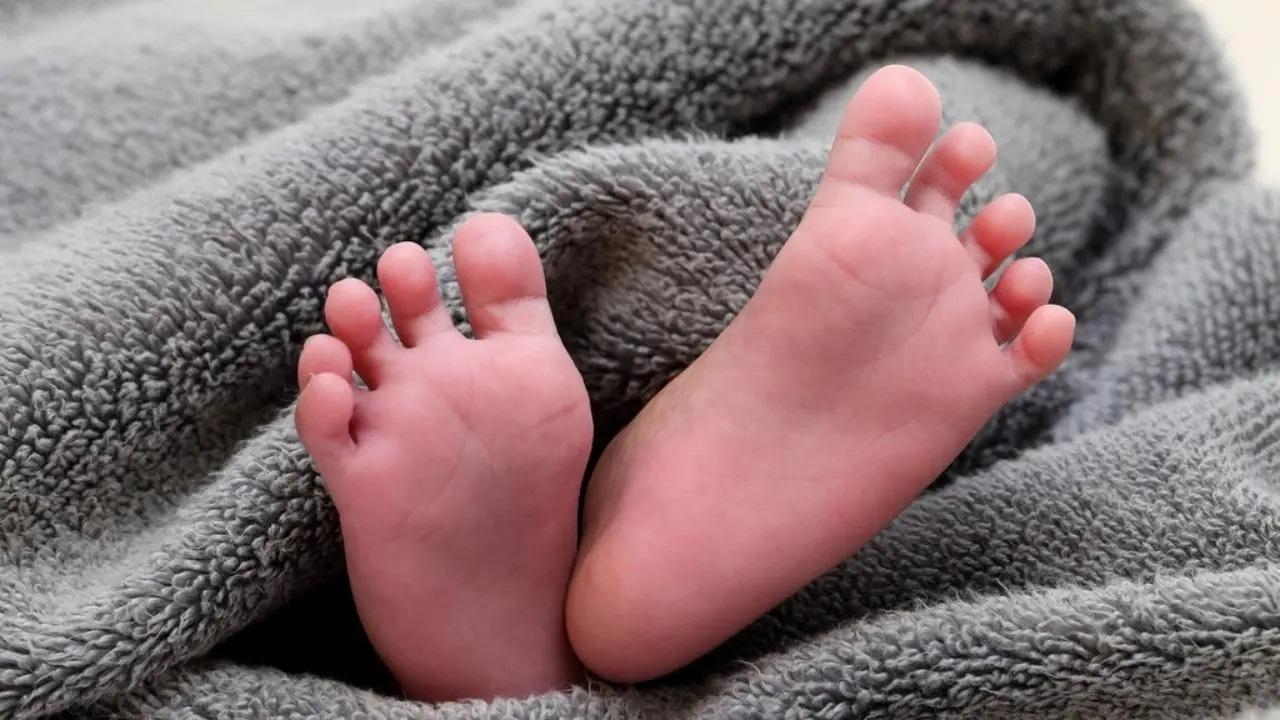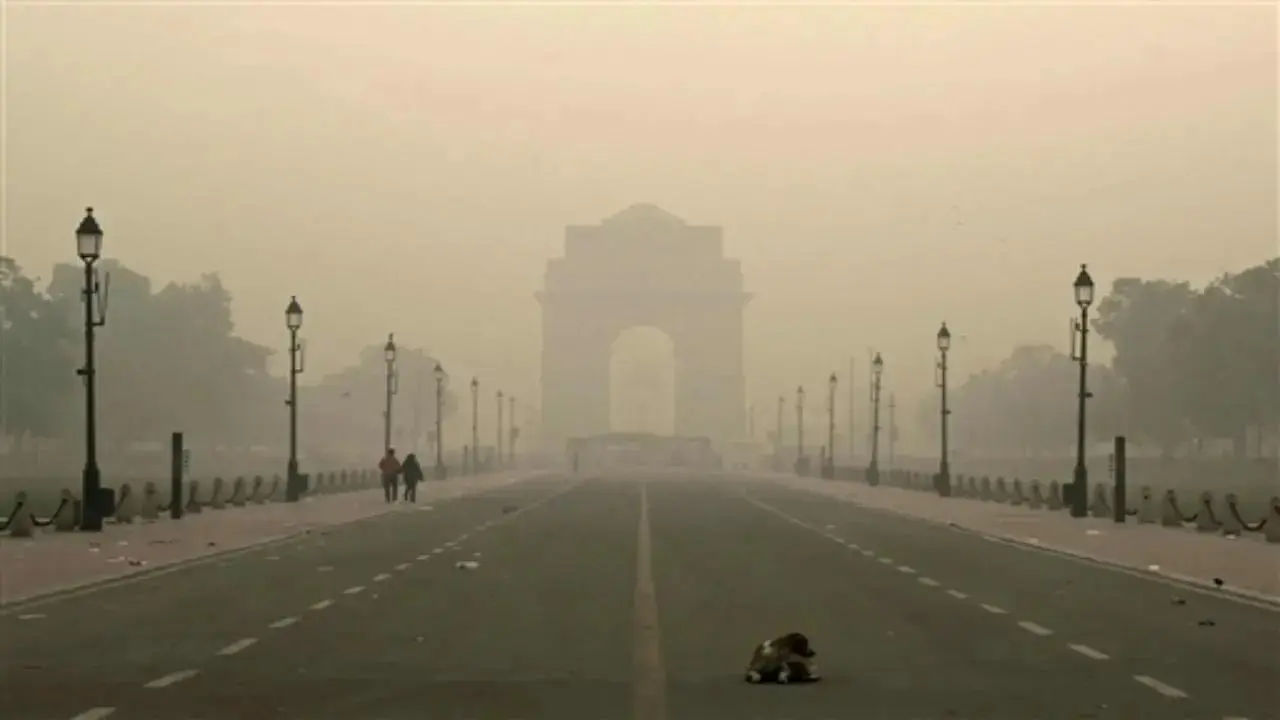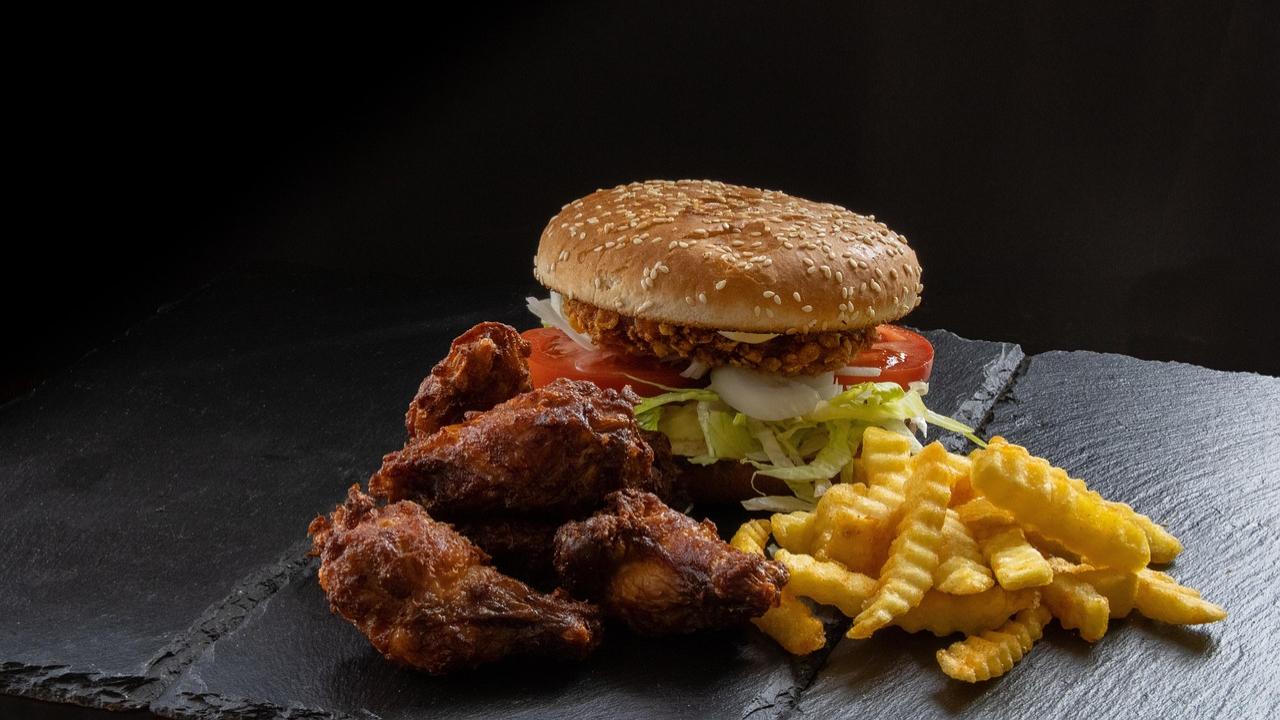Diwali is almost here as it set to be celebrated from October 18 to October 23 across five days not only in India but across the world. Indians across the country are going to be celebrating the ‘Festival of Lights’ with a lot of good food, culture, tradition, but many for many it is not complete without bursting firecrackers, an activity that has become an important part of the festivities.
The traditional crackers that not only produce a lot of smoke but also create a lot of loud sounds. This not only leads to air but also sound pollution, with the latter affecting humans and animals alike.
With Diwali festivities, mid-day spoke to Dr Paresh P Naik, Consultant ENT, Jaslok Hospital & Research Centre, and Dr Jarvis Pereira, Consultant ENT, Holy Family Hospital, highlight the effects of noise pollution. They not only share why we should not take it for granted, but also the effects of being exposed to loud sounds, on our health.
How dangerous is the sound and noise pollution during Diwali for people in general?
Naik: The noise from firecrackers can reach levels of 140–160 decibels (dB)—similar to a jet engine or gunshot. Normally, our ear drum and inner ear structures work to protect us from loud noises through natural reflexes, but these have limits. Beyond 85 dB, prolonged or sudden exposure can cause damage to the hearing mechanism, leading to ear pain, headaches, ringing in the ears (tinnitus), and in some cases, permanent hearing loss. The sudden bursts and unpredictable nature of cracker noise make it especially harmful, even to healthy ears.
Pereira: During Diwali, noise pollution poses a serious threat to health. Firecrackers often produce sound levels exceeding 125 decibels—intense enough to cause temporary or even permanent hearing loss, often accompanied by ringing in the ears (tinnitus). Prolonged exposure can also trigger stress, anxiety, palpitations, and even cardiac arrhythmias. Moreover, disrupted sleep resulting from excessive noise contributes to cognitive decline and various other health problems. It is therefore advisable to take preventive measures such as using earplugs or earmuffs to reduce the impact. Limiting exposure to loud sounds and maintaining a safe distance from firecrackers can significantly help in safeguarding one’s well-being.
What are some of the common health problems people face during Diwali?
Naik: There are both noise-related and pollution-related health issues. Loud noise can trigger migraines, worsen tinnitus, and cause sleeplessness, particularly in those sensitive to sound. Children may suffer from sudden sensorineural hearing loss, which is a medical emergency. Meanwhile, the smoke from firecrackers irritates the nasal passages and throat, leading to sinus congestion, sore throat, and worsening of asthma or bronchitis. We also see a rise in sinusitis flare-ups and breathing problems during this time, especially in those with pre-existing conditions.
Pereira: Noise pollution during Diwali creates numerous health risks. They include hearing loss, tinnitus, stress, anxiety, and cardiac arrhythmias. Loud sounds may stimulate an increased heart rate, palpitations, blood pressure, and cardiac arrhythmias. Noise-induced hearing loss may be temporary or permanent. Furthermore, loud sounds from firecrackers may spike stress and anxiety, potentially leading to exacerbation of existing health conditions such as hypertension, diabetes, and mental health disorders. Not to mention the smoke worsening nasal allergy and lung conditions such as asthma and bronchitis. Safety precautions need to be taken and, in cases of prolonged symptoms, consult your healthcare provider. By taking action, you could avert any long-term consequences and improve the health of many families during Diwali.
Which age groups or groups of people are most vulnerable to these health issues?
Naik: Babies, young children, pregnant women, elderly individuals, and people with weakened immune systems are the most vulnerable. Children have underdeveloped respiratory and auditory systems, making them more sensitive to pollution and noise. Pregnant women may experience stress from loud noises, and in extreme cases, fetal distress or preterm labor. The elderly, especially those with chronic conditions like asthma or hearing loss, are also at high risk. Similarly, post-cancer treatment patients or those with low immunity are prone to respiratory infections and ENT complications.
Pereira: Noise pollution during Diwali poses a multitude of health hazards, including hearing loss, tinnitus, stress, anxiety, and cardiac irregularities. Exposure to loud sounds can elevate heart rate and blood pressure, trigger palpitations, and precipitate arrhythmias. Noise-induced hearing loss may range from temporary impairment to permanent damage. Additionally, the intense bursts of sound from firecrackers can heighten stress and anxiety, potentially worsening pre-existing conditions such as hypertension, diabetes, and mental health disorders. The accompanying smoke further aggravates respiratory issues, particularly nasal allergies, asthma, and bronchitis. Taking appropriate safety measures and seeking medical advice for persistent symptoms are essential. Proactive steps not only help prevent long-term complications but also promote the well-being of countless families during the festive season.
How does noise pollution affect people with existing hearing issues?
Naik: For people who already have hearing loss, use hearing aids, or have undergone cochlear implants, the loud Diwali noises can be especially distressing. These devices may amplify loud sounds, leading to discomfort or even pain. It can also cause distorted sound perception, affect balance, and lead to vertigo. Children with speech or hearing delays may regress due to sensory overload and anxiety during the festive period.
Pereira: For individuals with hearing difficulties, Diwali’s noisy celebrations can be particularly challenging. Excessive noise may aggravate existing hearing problems, making communication and participation in festivities more difficult. Such situations can also heighten stress and anxiety among those with hearing impairments. People who use hearing aids may experience discomfort or feedback due to the loud sounds. Family members and friends should offer patience and understanding, providing visual cues or written communication whenever possible. Creating quiet spaces, using earplugs, and ensuring access to supportive resources can greatly help those with hearing challenges enjoy the festivities more comfortably.
How loud is Diwali noise pollution compared to regular city noise?
Naik: Regular traffic or household noise usually ranges between 60–90 dB. In contrast, firecrackers can exceed 140 dB. This level of sound is instantly damaging to the ears, especially when repeated over several days. Moreover, during Diwali, noise pollution is combined with airborne particulate matter from crackers, which worsens the health impact—unlike regular, more predictable urban pollution.
Pereira: Noise levels during Diwali celebrations can reach as high as 125 decibels—far exceeding safe limits. To put this in perspective, normal conversation typically measures around 60 decibels. Prolonged exposure to sounds above 85 decibels can cause hearing loss over time. What makes Diwali noise pollution particularly harmful is its acute and intense nature, which greatly increases the risk to hearing. Even short bursts of extremely loud noise can cause temporary threshold shifts and, in some cases, permanent hearing damage. Protecting one’s hearing is simple yet essential—by limiting exposure and maintaining distance from loud sources, one can significantly reduce the risk during the festive season.
What precautions can people with hearing issues take during Diwali?
Naik: Here are a few easy but effective tips:
1. Use noise-cancelling headphones or soft earplugs for sound protection.
2. Stay indoors during peak firecracker hours (usually evenings).
3. Avoid bursting or being near firecrackers altogether, especially for children, pregnant women, and the elderly.
Pereira: Individuals with hearing impairments can safeguard themselves during Diwali by using noise-reducing earplugs or earmuffs. Creating a quiet space at home, away from the commotion, can also provide much-needed relief. Whenever possible, it is advisable to stay in calmer areas during the festivities. For those who are Deaf or Hard of Hearing, visual cues such as strobe lights can serve as alerts for loud noises. Communicating specific needs to friends and family—and using written notes or gestures when necessary—can make interactions smoother. Choosing quieter or alternative ways to celebrate, or stepping away from noisy environments altogether, can further help minimize the impact of noise pollution.
If someone shows symptoms like ear pain, hearing loss, or breathing trouble during Diwali, what can people around them do?
Naik: Immediate response is crucial. For hearing issues, move the person to a quiet place, avoid inserting anything into the ear, and consult an ENT specialist immediately—especially in case of sudden hearing loss. For breathing issues, help the person sit upright, offer prescribed inhalers or nebulizers, and avoid further exposure to smoke. If symptoms like breathlessness or severe ear pain persist, seek emergency medical help without delay. Timely treatment, especially within 48–72 hours, can prevent long-term damage.
Pereira: If a person with a hearing impairment experiences difficulty during Diwali celebrations, assistance can be provided with simple yet thoughtful measures. Visual cues—such as hand signals, sign language, or strobe lights—can serve as respectful alerts in a supportive buddy system. Offering access to a quiet area, or moving together to a less noisy space, can help ease discomfort. Communication through written notes or simple gestures can also foster better understanding. Should a person with hearing loss or Deafness experience distress, pain, or signs of further hearing impairment, immediate medical attention is essential. Removing them from the source of loud noise and remaining calm and reassuring can greatly reduce anxiety, ensuring they receive timely and appropriate care.





